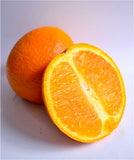Muscat





Classic aromas of Muscat are: Green Grapes, Orange, Rockmelon, Apricots and Yellow Peach
Muscat is a white grape that has a home throughout Europe but is believed to originate from Greece or Italy.
Muscat, sometimes called Moscato, is one of the most aromatic grape varietals known to man. It also lends itself perfectly to producing sweet and fortified wines – such as those produced in the south of France. It is perhaps most famously known as being the grape behind the sweet sparkling wine: Moscato d’Asti.
Italy has the largest plantings of Muscat with 13,820ha across the total vineyard area. The clear majority of these plantings are in northern Italy where they contribute to the wines of Moscato d’Asti, and Asti, that are sweet and lightly sparkling. Throughout the south of Italy Moscato is used to produce both dry and sweet wines made in a Passito style – where the grapes are dried out before fermentation.
After Italy, France has the largest hectarage of Muscat, which has increased over 3 times in size in the last 50 years. The majority is planted in the Languedoc-Roussillon area in the south of France where it makes up 5,737ha and is the third most planted white grape. The majority of the Muscat goes into making the sweet VDNs (Vin Doux Naturels) of Rivesaltes and Muscat-de-Beaumes-de-Venise, where it has clear aromas of green grapes, oranges and baked peaches.
Both Spain and Greece both make fantastic sweet wines from Muscat. In Greece the highly regarded wine style: Moschato, are sweet wines made exclusively from Muscat – these along with the Muscat of Samos wines are legendary in the sweet wine halls of fame.
In Australia, Muscat has taken another clone – Brown Muscat – which is used for the famously sweet and fantastic wines of Rutherglen.
When Muscat is made into a dry wine, like those found in Alsace, it will have a medium body and medium acidity. It shall also have high levels of floral aromatics such as rose, orange blossom and elderflower. These are accompanied by the hallmark: green grapes. When it is made into a sweet wine, Muscat takes on a whole range of concentrated floral aromas of rose, lavender, orange blossom, dried apricots, peaches, and baked apple. As these sweet examples mature they will develop toasty aromas of treacle, nuts, chocolate, figs and coffee.
